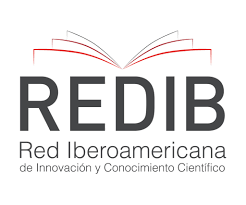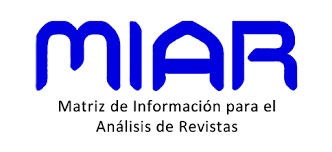From the Europe of “disenchantment” to the Europe of “disenkantment”
DOI:
https://doi.org/10.51743/cpe.39Keywords:
Max Weber, disenchantment of the world, Jürgen Habermas, consensus, Edith Stein, relativism, relativity of valuesAbstract
This paper opens with a reflection on Max Weber's thesis of "disenchantment of the world" as a diagnosis of the social situation of the early twentieth century. Secondly, it centers on the notion of consensus which Jürgen Habermas proposes to alleviate the political challenge posed by the pluralism in modern democracy. After identifying in both the presence of Kantian philosophy as the main difficulty to address long-term solutions, a response is proposed from the philosophy
of Edith Stein.
Downloads
Global Statistics ℹ️
|
272
Views
|
223
Downloads
|
|
495
Total
|
|
References
M. OFFENBACHER, Konfession und soziale Schichtung. Eine Studie über die wirtschaftliche Lage der Katholiken und Protestanten in Baden, Tübingen und Leipzig, 1900, p. 68, citado en M. WEBER, La ética protestante y el espíritu del capitalismo, ISTMO, Madrid, 1998 p. 100.
A. GIDDENS, Sociología, Alianza, Madrid, 2001, p. 373.
Mariano José de Larra, “Vuelva usted mañana”, en Cervantes Virtual. La obra apareció por vez primera en El Pobrecito Hablador. Revista Satírica de Costumbres, n.º 11, enero de 1833, Madrid; (http://www.cervantesvirtual.com/obra-visor/vuelva-usted-manana--0/html/ff7a5caa-82b1-11df-acc7-002185ce6064_2.html). [Consultado el 27 de octubre de 2018].
M. WEBER, Gesammelte Aufsätze zur Wissenschaftslehre, 3ª ed., J.C.B. Mohr (Paul Siebeck), Tübingen, 1968, p. 433.
W. SCHLUCHTER, Die Entzauberung der Welt. Sechs Studien zu Max Weber, Mohr Siebeck, Tübingen, 2009, p. 1.
W. SCHLUCHTER, El desencantamiento del mundo. Seis estudios sobre Max Weber, Fondo de Cultura Económica, México DF, 2017.
GÓMEZ, A.Filosofía y metodología de las Ciencias Sociales. Alianza Editorial -. Madrid, 2003.
G. REALE y D. ANTISERI, Historia del pensamiento filosófico y científico. Vol. III “Del romanticismo hasta hoy”. Empresa Editorial Herder S. A. –. Barcelona, 2002, p. 419.
HABERMAS, J. , Más allá del Estado nacional, Madrid, Trotta, 2001, p. 72.
GARCÍA GÓMEZ-HERAS, J. M., Ética y hermenéutica p. 292. Biblioteca Nueva, S.L. -. Madrid, 2000.
HABERMAS, J., "Posicionamiento en la discusión sobre las bases morales del estado liberal”, enero 2004, ponencia leída por Jürgen Habermas el 19 de Enero de 2004 en la Tarde de discusión con Jürgen Habermas y Joseph Ratzinger, organizada por la Academia Católica de Baviera en Munich.
J. HABERMAS, Problemas de legitimación en el capitalismo tardío, Cátedra, Madrid, 1999, p. 180.
DILTHEY,W., Introducción a las ciencias del espíritu, Fondo de Cultura Económica, México D.F., 1949.
KANT, I., Crítica de la razón pura (Trad. de P. Ribas) Alfaguara, Madrid, 1978, (21ª ed.) 2003, “Segunda división - La dialéctica trascendental”, pp. 297-568.
AQUINO, T. de, " Cuestiones disputadas sobre la verdad (De Veritate)". Tomos I y II. Versión española editada por A. L. González, J. F. Sellés y Mª I. Zorroza. EUNSA, Pamplona, 2016.
E. STEIN, Potenz und Akt. Studien zu einer Philosophie des Seins, ESGA 10, Freiburg- Basel-Wien, Herder, 2005, pp. 64-66.
STEIN, E., Endliches und ewiges Sein. Versuch eines Aufstieges zum Sinn des Seins, ESGA 11/12, Herder, Freiburg-Basel-Wien, 2006, p. 272.
Downloads
Published
How to Cite
Issue
Section
License
The author reserves the rights (copyright) of the published works, and the journal encourages and allows their reuse, from the preprint. The works are published in the electronic edition of the journal under a license "Creative Commons Attribution / Attribution-NonCommercial 4.0 International Public License - CC BY-NC 4.0", and can be copied, used, disseminated, transmitted and publicly exhibited.
The author / s partially transfer the property rights (copyright) of this work for the printed and online editions, provided that:
- The authorship and original source of its publication (magazine, publisher and URL of the work) is cited.
- Are not used for commercial purposes.
- The existence and specifications of this user license are mentioned.
It also declares to have respected the ethical principles of research and to be free from any conflict of interest.
"C.P.E." encourages the authors and the scientific community to the maximum promotion and dissemination of the works in their final version through:
1) Your list of contacts (emails) and social networks (Facebook, Twitter, LinkedIn ...).
2) Institutional repository of your University and public repositories (Mendeley, Cosis ...).
3) Scientific social networks (ResearchGate, Academia.edu, Kudos ...).
4) Personal or institutional website, blog, etc.
5) Google Scholar, ORCID, ResearchID, ScopusID, Dimensions, PlumX ...
6) Printed copies purchased directly and sent to specialists for reading and subsequent citation if appropriate.




















1.png)
1.png)

1.png)





.png)
.png)

.png)
1.png)
1.png)
